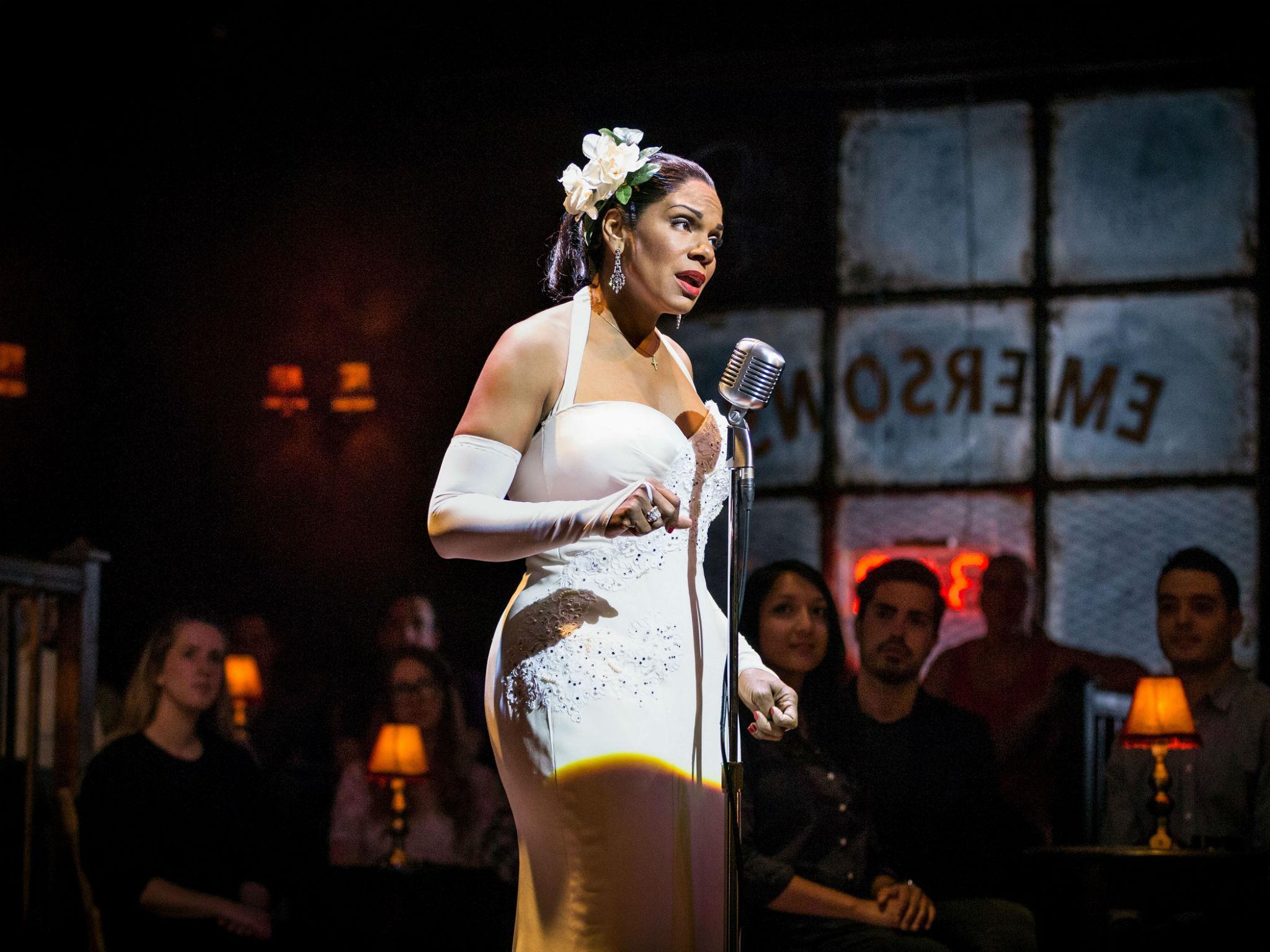Lady Day at Emerson's Bar and Grill, Wyndham's Theatre, London, review: Audra McDonald is absolutely astonishing
Six-time Tony Award winner Audra McDonald makes her West End debut as the jazz icon, Billie Holiday

Your support helps us to tell the story
From reproductive rights to climate change to Big Tech, The Independent is on the ground when the story is developing. Whether it's investigating the financials of Elon Musk's pro-Trump PAC or producing our latest documentary, 'The A Word', which shines a light on the American women fighting for reproductive rights, we know how important it is to parse out the facts from the messaging.
At such a critical moment in US history, we need reporters on the ground. Your donation allows us to keep sending journalists to speak to both sides of the story.
The Independent is trusted by Americans across the entire political spectrum. And unlike many other quality news outlets, we choose not to lock Americans out of our reporting and analysis with paywalls. We believe quality journalism should be available to everyone, paid for by those who can afford it.
Your support makes all the difference.Audra McDonald won her sixth (record-breaking) Tony Award for her performance as Billie Holiday in Lanie Robertson’s musical play. She now makes her long-awaited West End debut reprising the role in Lonny Price’s production. The year is 1959, just months before Holiday died, and the piece purports to be one of her actual last concerts, performed in the titular intimate bar in Philadelphia. To promote a nightclub atmosphere, there is table seating on stage and at the front of the stalls in Wyndham’s, and punters so positioned may be honoured to have their drinks hi-jacked by the star or to offer her a light.
Backed by a trio of terrific musicians – Neville Malcolm on bass, Frankie Tontoh on drums and Shelton Becton on piano (in the role of Jimmy Powers, Billie’s manager) – McDonald’s Holiday performs more than a dozen songs, including some of the artists's best-known numbers (“T’ain’t Nobody’s Business If I Do”, “God Bless the Child”, “What A Little Moonlight Can Do”).
In between, growing increasingly unsteady from all the booze she has been knocking back, she delivers an unstructured monologue that draws on memories of a childhood blighted by rape and prostitution and on the scourge in later years of abusive men, heroin addiction and institutionalised racism.
McDonald is absolutely astonishing. Her luscious, classically-trained soprano is, ordinarily, a far cry from Billie Holiday’s jazz sound. But here she pulls off a quite uncanny impersonation of that plaintive voice with its eccentric intonation patterns, its catches, side-of-the-mouth slides and leaps of register. Except that that puts it the wrong way round. You feel that it is by having entered so deeply into Holiday’s spirit that she is able to capture all the vocal tics. And that it’s by understanding why Holiday wanted her voice to sound like an instrument that McDonald can bend notes and improvise in the manner of the artist rather than merely reproduce her effects.
Nothing is locked in place. Holiday informs us that she can’t sing on cue and has, ideally, to let the song find her. There are moments, in this show, where having several times resisted the pressure to sing a particular piece, she finally answers the occasion – and the result is electric, as in McDonald’s devastating rendition of that protest-poem of a song “Strange Fruit”.
After a 1947 narcotics conviction, Holiday’s “cabaret card” was revoked and she could no longer get work in New York clubs. Lanie’s play catches up with her when the First Lady of Jazz was being called “Lady Yesterday” by some of the disc jockeys. McDonald recounts the anecdotes in a manner that ranges piercingly from rascally warmth to sozzled bitterness. Stories such as the one about touring the Deep South and the day she had to take appropriate revenge on the white female maitre d' of a fancy restaurant who was adamantly barring her from the bathroom.
It would be impossible to conceal all the contrivances you get in this kind of one-person lifetime-in-a-concert format but the tackiness-quotient is slight here and there’s none of the prurience that sometimes mars shows about the downfall of divas. Full of sensitive musicianship, this is the tribute paid by one great artist to another. Unforgettable.
Join our commenting forum
Join thought-provoking conversations, follow other Independent readers and see their replies
Comments